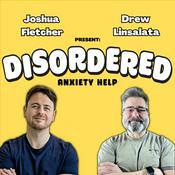After many months of building and planning, the Disordered Community space is now live. We could not be more pleased about this!
Check out the community space here:
https://disordered.fm/community
Why did we do this?
Endless scroll, algorithm-driven, attention focused platforms that only want to monetize your struggle are awful places to support anxious people.
A smaller, more focused, intentional community where we can interact in a meaningful way and foster education, inspiration, and encouragement is actually useful in the real world.
There are way too many anxiety "communities" that make egregious promises to fix you, cure you, lead you to freedom, and make you better - often at a very high cost. That's not how to do that.
We're personally tired of dancing for Meta and Google. It's a huge amount of work to reach a small number of people (even with lots of followers) on platforms that don't really value the topic and the discussions we're having.
We built this space to foster interaction, sharing, cheerleading, and encouragement. We've jammed it full of articles, tips, ideas, podcast episodes, and all the psychoeducational workshops we've produced over the years. All included in the community.
You do NOT have to join the community to get better. This is absolutely optional and we're not going to hide things behind the paywall. Our content will continue to be out here on the Internet at large. But we do think we've made something useful and reasonable and that's where we're gonna be hanging out.



